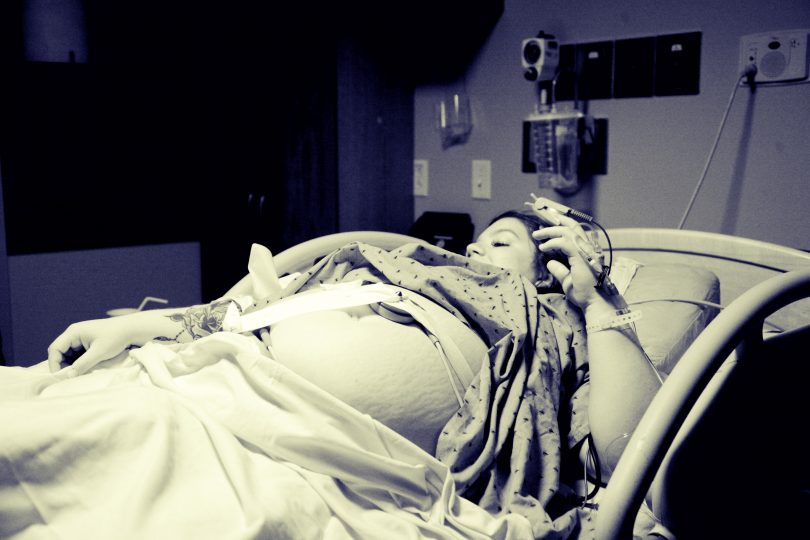On Thursday, the California Assembly Appropriations Committee unanimously approved AB 732, a bill to improve reproductive health care and living conditions for pregnant women in California’s lockups.
Many of the state’s recently enacted protections for locked up pregnant women apply to those held in prisons, but not jails. Yet, two-thirds of the state’s incarcerated women are in jails, rather than prisons.
Reports of inadequate health services in lockup are widespread in California and across the nation. Proper and timely health care is especially crucial for pregnant women.
“When pregnant people in jail don’t get the reproductive care they need, it harms the health and wellbeing of both the pregnant person and, if they choose to become a parent, their baby,” the ACLU of Southern California said in support of the bill. “It also increases the number of preventable pregnancy- and childbirth-related deaths and medical complications.”
The bill by Assemblymember Rob Bonta would require jail staff to offer pregnancy tests during the jail intake process to women who want them. AB 732 would also order state prisons and local jails to schedule pregnant individuals for prenatal exams within the first 7 days of incarceration, to be followed by regular exams throughout the pregnancy. Incarcerated pregnant people would also only be assigned to bottom bunks. Under the bill, pregnant people could designate a “support person” to assist them during and after labor in the delivery room — either an approved visitor, or a member of the corrections staff if officials deny the requested visitor based on safety or security concerns.
Additionally, California’s penal code guarantees free menstrual products to women who request them in state prisons. The law says that people in jails who menstruate must be allowed to continue to use menstrual and birth control products, but it does not require local jails to provide period products free of charge. AB 732 seeks to change this by requiring both pads and tampons to be available and free for those who need them.
The bill would also ban prison and jail staff from using Tasers and pepper spray on pregnant individuals, and from putting people who are pregnant, or who have recently given birth or had a miscarriage or abortion, into solitary confinement — two reforms that advocates say are critically needed.
Isolating anyone in lockup can be severely detrimental to mental health, but the practice carries far more danger for pregnant women, as evidenced by recent stories of women forced to give birth inside their cells.
In July 2017, Candace Steel, a woman awaiting trial for misdemeanor trespassing, gave birth alone on the floor of her solitary confinement cell in the Santa Rita Jail, in Dublin, CA, after jail staff ignored her pleas for help.
When the baby, Hope, arrived, her umbilical cord was wrapped around her neck and she was struggling to breathe. Steel says she saved Hope by unwrapping the cord and sticking her finger down the baby’s throat, which caused Hope to take her first breath.
Steel filed a class-action lawsuit against the Alameda County Sheriff’s Department for neglecting to get her urgent medical care, arguing that because the department contracts with a for-profit medical company, California Forensic Medical Group, jail staff members were so motivated to keep costs down that inmates were regularly denied adequate medical attention. Three other members of the class had miscarriages in the jail.
Steel’s not the only mother who has been forced to give birth alone in a cell — Tammy Jackson in Florida, and Shaye Bear in Texas, and Diana Sanchez in Denver, each had similarly traumatizing experiences.
All four of these pregnant women were incarcerated for low-level offenses. Steel, for misdemeanor trespassing, Jackson and Bear for drug possession, Sanchez for cashing a check in her sister’s name and then violating probation.
Across the nation, a startling 73 percent of women in jails and prisons have not been accused or convicted of a violent crime, according to the Prison Policy Initiative’s latest “whole pie” analysis of how and why women are incarcerated in the U.S.
The most common crimes for which women are locked in jails are property and drug crimes. Most common among women’s property crimes is fraud, followed by larceny/theft. And those women who are being held for drug crimes are most likely to be incarcerated for possession, rather than trafficking, according to PPI’s data.
Approximately 27 percent of incarcerated women are behind bars for violent crimes, including actions taken in self-defense against abusive spouses or partners.
Eighty percent of women in U.S. jails are mothers. Most of the incarcerated mothers are primary caregivers for their children, and most are incarcerated for non-violent crimes like Steel, Jackson, Bear, and Sanchez.
In 2014, a UC Irvine study found that having a parent behind bars can be more damaging to a kid’s well-being than divorce or even the death of a parent. Students with incarcerated mothers and fathers are more likely to receive suspensions in school, and are more likely to drop out than their peers. Kids with incarcerated parents are also more likely to come into contact with the justice system, themselves.
And when mothers return from jail and prison, they are more likely than formerly incarcerated men to experience homelessness, unemployment, and other barriers to successful reentry.
While criminal justice reform advocates say pregnant women should not be incarcerated pretrial or even locked up for low-level convictions at all, the absolute least California can do is ensure pregnant people have adequate reproductive health care while incarcerated.
The bill is sponsored by the ACLU of California, the Women’s Policy Institute of the Women’s Foundation of California, California Latinas for Reproductive Justice, and Young Women’s Freedom Center.
We’ll be keeping track of AB 732, through our Bill Watch section.
Photo by Sharon McCutcheon on Unsplash

